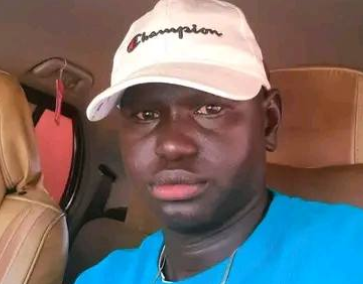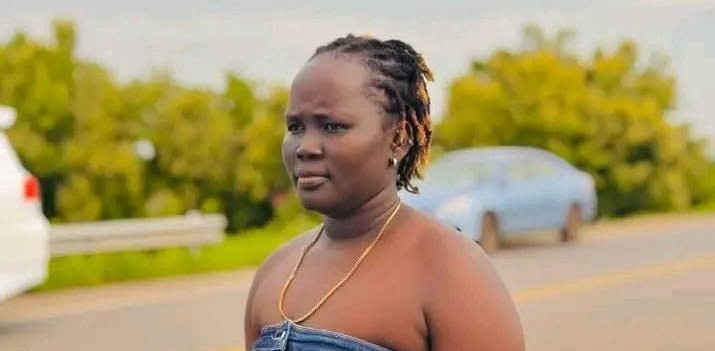Popular South Sudanese female comedian Amath Jok was rearrested by the National Security Services (NSS) in Juba on Saturday alongside a TikTokker who goes by the name Gokwel Gokwel and a singer, Akot Matuongdit.
Jok, 33, was detained for four days last week by the NSS following a live TikTok broadcast on 10 November, in which she defended former Vice-President Dr. Benjamin Bol Mel, who was fired last Wednesday. A video clip, in which she refers to Kiir as “a big thief wearing a hat,” circulated widely online. She was released from detention but barred from using social media.
Chan Bol Akech, a relative of Jok, said the family was shocked when security personnel returned to re-arrest “our beloved sister, Amath Jok.”
The reasons behind the renewed detention remain unclear, but the family was informed that during her initial release, the group that arrested her on 10 November was not involved in the decision to free her.
“When the family attempted to bail her out, disagreements reportedly emerged between the security groups handling her case,” he explained. “This alleged dispute led to Amath Jok being recalled back into custody. Amath was re-arrested on Saturday at around 5 p.m. at her residence in New Site, despite earlier instructions ordering her to remain at home.”
Meanwhile, Akot Matuongdit’s relatives, several of whom spoke on condition of anonymity, confirmed the singer’s arrest by men wearing NSS uniform.

Singer Akot Matuongdit. (Courtesy photo)
Akuac Wol, who said he is a brother of the singer, confirmed the arrest.
“My brother was detained by unknown military personnel wearing the uniform of the NSS while on his way to South Sudan Hotel, where his colleague had invited him for a show at 9 p.m.,” he said. “For several days, his situation has not been okay. The government is targeting Aweil sons and daughters. The question is why Akuac Wol was left behind. However, I call on the government to pardon him and his colleagues who were reportedly detained with him.”
“I do not know whether it was Akuac Wol or the government who arrested my brother,” he added.
Meanwhile, Hamet Deng William, the president of the South Sudan Artists’ Union (SSAU), told this publication that the trio was arrested on Saturday, but said the reasons for their apprehension are not clear.
“I heard that the guy was arrested, but I just heard the rumours,” he stated. “I do not know the reason why he was arrested.”
Bol Deng Bol, the Executive Director of INTREPID South Sudan (ISS) and Chairperson of the Jonglei Civil Society Network (JCSN), strongly condemned the recent detention of the comedian, Amath Jok, and other artists, describing it as a violation of their constitutional rights.
“This detention is definitely a violation of their rights and freedom of expression,” he said. “Citizens have the right to express their views, whether positive or negative, and whether directed at government officials or not. There is absolutely no need for anyone to be arrested simply for expressing their views.”
Deng stressed that only statements amounting to defamation could justify legal action, but emphasized that the comedians’ statements did not meet that threshold.
“If it does not vilify someone and does not constitute defamation, then there is absolutely no need for any arrest,” Deg stressed. “What is happening to them now is censorship and a violation of their rights.”
Deng contends that South Sudan’s entertainment industry is young and rapidly developing, requiring clear legal frameworks to safeguard artists, including comedians, from arbitrary punishment.
“In other countries, even a president can be insulted by a comedian without it being treated as a crime. It is comedy, it is not intended to cause harm,” he explained. We need a law that will protect our young entertainment industry. Such a law will ensure artists are protected in whatever they do within the confines of the law.”
“I appeal to security agencies and state authorities to exercise restraint and respect constitutional freedoms,” Deng added.
He said suppressing public expression breeds resentment and may encourage violent outbursts.
“If people are intimidated or arrested, they will stop talking. And when grievances build up, they explode,” Deng stated. “Some people are now expressing themselves violently because they are not allowed to express themselves peacefully.”




